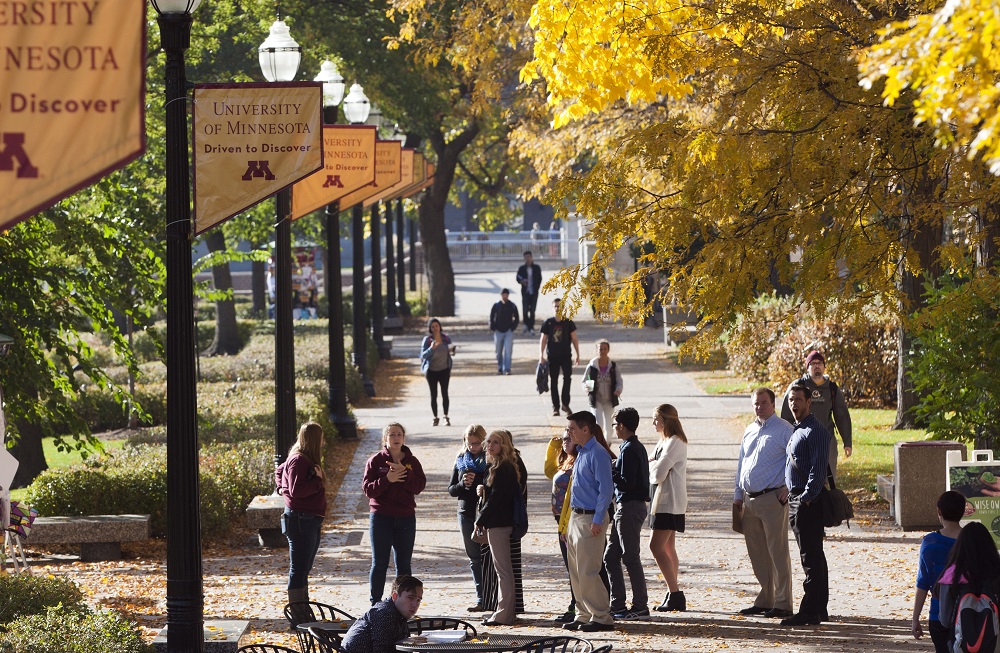Student loan tax credit would grow tenfold under bill

B. Rosas wants to go back to school and get an advanced degree.
“But the price is just simply not worth it anymore.”
Student loan debt is holding the recent University of Minnesota graduate back from pursuing his dream. A tax credit could lighten his burden.
Rosas was speaking to the House Taxes Committee in support of HF443, a bill sponsored by Rep. Kaohly Vang Her (DFL-St. Paul). The state’s maximum student loan tax credit is currently $500, but that would increase to $5,000 under the proposed legislation. It would also make the credit refundable and move its income-based phaseout from $10,000 to $50,000.
The committee laid the bill over for possible omnibus bill inclusion.
“In 2019, 50,900 Minnesotans benefited from the current student loan tax credit,” Her said. “Under this new bill, 132,400 additional Minnesotans would be eligible. In Minnesota, there are about 775,600 student loan borrowers who owe a total of $27.1 billion. The average student loan debt load is $30,894 for state students. Those with private loan debt typically have about $8,000 to $10,000 more.
“It’s also an equity issue,” she added. “Black and African-American college graduates owe an average of $25,000 more in student loan debt than white college graduates.”
Soon to be among them is Marcelus Ifonlaja, a student at Metropolitan State University and board member of Students United.
“Despite being bouncing around in foster care, I made the decision in sixth grade that I wanted to go to college to provide a better house and financial situation from my parents,” he said. “This bill is another incentive to live in Minnesota and build a family, something that, as a former foster, I’ve been very intentional about in my decision making.”
 Marcelus Ifonlaja testifies before the House Taxes Committee Jan. 25 in support of a bill sponsored by Rep. Kaohly Vang Her, right, that would increase the state's maximum student loan tax credit. (Photo by Andrew VonBank)
Marcelus Ifonlaja testifies before the House Taxes Committee Jan. 25 in support of a bill sponsored by Rep. Kaohly Vang Her, right, that would increase the state's maximum student loan tax credit. (Photo by Andrew VonBank)“Studies have shown that student loan debt has negative impacts on marriage, homeownership and birth rates,” Her said. “The state’s workforce shortage problem will only get worse if we don’t do more to attract young, educated workers. This bill encourages those who are college-educated to move to Minnesota to work, live, spend, start a family and thrive.”
The Department of Revenue estimates the bill would cost the General Fund $262.9 million in fiscal year 2024 and $446.8 million in fiscal year 2025, and that about 196,400 tax returns would be affected in tax year 2023.
“From looking at the cost of this, we’re looking at almost a half a billion dollars for a credit to help with payment,” said Rep. Chris Swedzinski (R-Ghent). “Maybe we should take that substantial amount and put it into higher education.”
A related bill was also laid over for possible inclusion in an omnibus tax bill: HF754, also sponsored by Her, would permanently adopt the American Rescue Plan Act’s exclusion for discharged student loans.
Related Articles
Search Session Daily
Advanced Search OptionsPriority Dailies
Speaker Emerita Melissa Hortman, husband killed in attack
By HPIS Staff House Speaker Emerita Melissa Hortman (DFL-Brooklyn Park) and her husband, Mark, were fatally shot in their home early Saturday morning.
Gov. Tim Walz announced the news dur...
House Speaker Emerita Melissa Hortman (DFL-Brooklyn Park) and her husband, Mark, were fatally shot in their home early Saturday morning.
Gov. Tim Walz announced the news dur...
Lawmakers deliver budget bills to governor's desk in one-day special session
By Mike Cook About that talk of needing all 21 hours left in a legislative day to complete a special session?
House members were more than up to the challenge Monday. Beginning at 10 a.m...
About that talk of needing all 21 hours left in a legislative day to complete a special session?
House members were more than up to the challenge Monday. Beginning at 10 a.m...